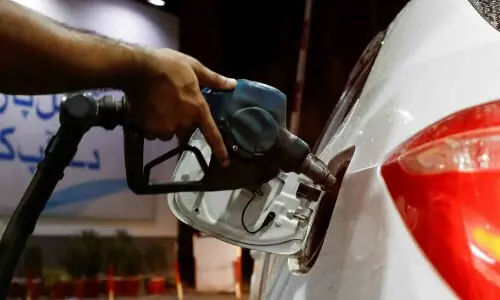ONE hopes the 19pc year-over-year decline in December remittances has given the resident ‘wizard’ in Q Block some pause. Amidst declining exports and immense pressure on what remains of the country’s meagre foreign exchange reserves, the country needed those remittances to pad its books. Yet Pakistanis abroad sent less money home, thanks, in part, to our finance minister’s unhealthy obsession with controlling the exchange rate. Market watchers said people have started giving preference to illegal hundi and hawala networks to remit money, as their operators — shady and unsavoury though they may be — are still giving people better conversion rates than the farcical official exchange rate maintained by the State Bank. That theory seems to be supported by the overall trend in remittances, which have posted a decline in each subsequent month for the past four months.
For an idea of just how important these remittance dollars are for Pakistan, one need only look at where the country stands at the moment. Remittances in the recently concluded six-month period of July-December 2022 were clocked at $14.1bn, $1.7bn less than in the same period last year ($15.8bn). The State Bank currently holds less than $4.5bn in its own reserves. It has been declining requests to issue letters of credit even for critical goods and commodities in order to keep those remaining dollars from flying out. In this context, it would seem that those ‘lost’ $1.7bn could have provided the government with desperately needed breathing space. One cannot blame the expatriates. People are facing difficult economic conditions around the world, so remitters could be keeping more money for themselves and sending less to Pakistan. But for whatever sums they do send, they cannot be expected to agree to get fewer rupees for their dollars than what the open market is willing to give them. It is for this reason that many exporters (of both goods and services, ie freelancers) are also keeping their dollars stashed abroad until they are sure they will get a better rate. By creating these distortions, Ishaq Dar’s dollar peg is dealing long-lasting damage to the economy. It is feared that if it collapses — some say it is a question of not if, but when — the release of the pressures that have built up due to it will deal another body blow to the already gasping economy
Published in Dawn, January 16th, 2023




























